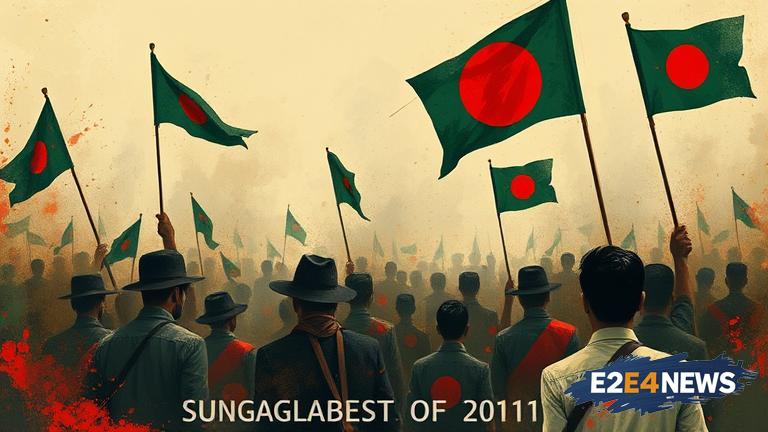The 1971 Bangladesh Liberation War was a pivotal moment in the country’s history, marking its independence from Pakistan. However, the legacy of the war continues to be felt, with many issues remaining unresolved. The war resulted in the deaths of an estimated 3 million people, with many more displaced and affected. Despite the passage of time, the nation is still grappling with the aftermath of the conflict. The lack of accountability for war crimes committed during the conflict remains a major concern. Many of those responsible for atrocities, including murder, rape, and torture, have never been brought to justice. The International Crimes Tribunal, established in 2009, has made some progress in prosecuting those responsible, but much work remains to be done. The tribunal has been criticized for its slow pace and limited scope, with many cases still pending. The government has also been accused of interfering with the tribunal’s work, undermining its independence and effectiveness. Furthermore, the issue of reparations for victims and their families remains unresolved. Many survivors of the war and their families have received little to no compensation for their suffering, despite promises from the government. The lack of support for victims has been exacerbated by the country’s limited resources and infrastructure. The ongoing struggle for justice is not limited to the war crimes tribunal. Many Bangladeshis are also seeking accountability for the role of local collaborators, who worked with the Pakistani military during the conflict. These collaborators, known as Razakars, were responsible for many of the atrocities committed during the war. However, many have never been held accountable for their actions, and some have even been able to integrate back into society. The issue of accountability is not just a matter of justice, but also of national reconciliation. Without a full accounting of the past, it is difficult for the nation to move forward. The government has taken some steps to address the legacy of the war, including the establishment of a museum and memorial to honor the victims. However, much more needs to be done to provide closure and justice for those affected. The international community also has a role to play in supporting Bangladesh’s efforts to address the legacy of the war. This includes providing technical assistance and support for the war crimes tribunal, as well as advocating for greater accountability and transparency. Ultimately, resolving the unresolved issues of 1971 will require a sustained effort from the government, civil society, and the international community. It will also require a commitment to justice, accountability, and transparency, as well as a willingness to confront the painful legacy of the past. The people of Bangladesh deserve nothing less, and it is only by confronting the truth and seeking justice that the nation can truly move forward. The ongoing struggle for justice is a reminder that the legacy of 1971 is still very much alive, and that the nation’s history continues to shape its present. As Bangladesh continues to grow and develop, it is essential that it does not forget the lessons of the past, and that it works to create a more just and equitable society for all. The unresolved issues of 1971 serve as a reminder of the importance of accountability, justice, and human rights, and the need for ongoing efforts to promote these values. By learning from the past and working towards a more just future, Bangladesh can create a brighter future for all its citizens.
